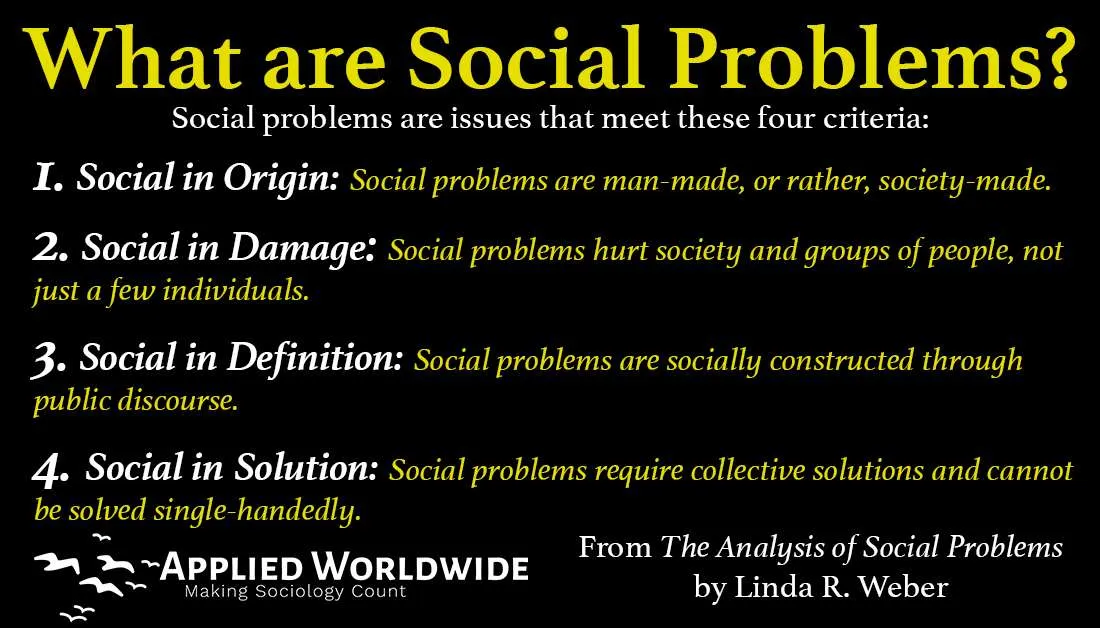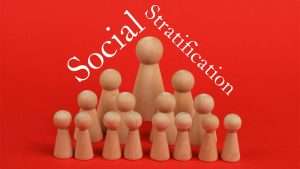In addition to sociology and social problems, sociology is, “the study of social life, social change, and therefore the social causes and consequences of human behavior.” Sociologists investigate and study deeply
The amplitude of sociology is very wide because all human behavior is social. The fundamentals of sociology covers almost everything regarding human existence, ranging from the family and business relationships, to the hostile mob.
Due to the sociology’s bearing upon the numerous existential impediments of the present world, it is apt for a felicitous significance to be considered the best approach to surmount all the stumbling blocks in our society. As the great sociologist Franklin H. Giddings have rightly pointed out, “sociology tells us how to become what we want to be.”
Further Considerations on Sociology and Social Problems
Furthermore, society is succinctly said to be a complex phenomenon with numerous of perplexities. It is solely via involving sociology that its intricacies and problems can be understood and solutions can be figured out. Hence, sociology scientifically studies the structure as well as the construction of the society, It is its task to study the social problems through the methods of scientific research and to bring about solutions to them.
The scientific study of human affairs will tremendously provide the body of ideology and principles that will bring about many means to harness the conditions of social life and improve them.
From Sociological and Non-sociological Perspectives
The three paradigms of sociology—structural functionalism, conflict theory, and symbolic interactions—have come to dominate sociological thinking, because they bring about useful explanations of structure of the problems and figure out applicable solutions. These perspectives look at the same social problems, but they do so in different manners. Their views taken together offer a fuller understanding of social problems than any of the views offers alone.
The sociological understanding of social problems lies basically on the concept of the sociological imagination while non-sociological understanding of problems rests on the surface of the problems. In his 1976 book, sociologist William Ryan acknowledged that
“Americans typically think that social problems like poverty and unemployment stem from personal failings of the people experiencing these problems, not from structural problems within the larger society. Using Mills’s terms, Americans tend to consider social problems as personal troubles instead of public issues. As Ryan put it, they tend to believe in blaming the victim rather than blaming the system.”
Similar or perhaps even worse is happening in Nigeria where, when an individual committed a repugnant act, for instance, robbery, the blame would only be attributed to him, but not the larger society or the stakeholders, whereas, from a sociological perspective the problem would be considered radically from its root, where it would come to light that the larger society and stakeholders have their own portion of blame for not furnishing education and employment to alleviate the poverty that is stirring up such individual to rob.

Sociology and Social Problems in Nigeria
From a considered perspective of mine, sociological theories are also applicable in solving personal problems, since the science of sociology abet individual to understand himself, his frailty, his ability as well as his limitations.
Unfortunately, Nigeria, as one of the countries being impeded by the menaces of insecurity, poverty and other social vices, is not giving sociology its due significance and istead considers it as a second-class course in the universities. Frrom a considered perspective of sociology, when the three paradigms of sociology are applied on the situation, the problem would be considered rationally from the genesis of all, to come up with useful explanation and understanding of the problems as well as bringing about solutions.
However, to attain progress by doing away with the stumbling blocks that hinder Nigeria and many others countries from development, the study of sociology is imperative, in view of the fact that only via sociology can a society be scientifically studied in such a way that present time can be dealt with and a much better future can be planned.
Final Considerations on Sociology and Social Problems in Nigeria
To cap it all, as it is quite an exigency in curing a disease to take its causes into radical consideration, so is soliciting sociologists involvement in figuring out solutions to all the menaces bedeviling our society and the world at large.








